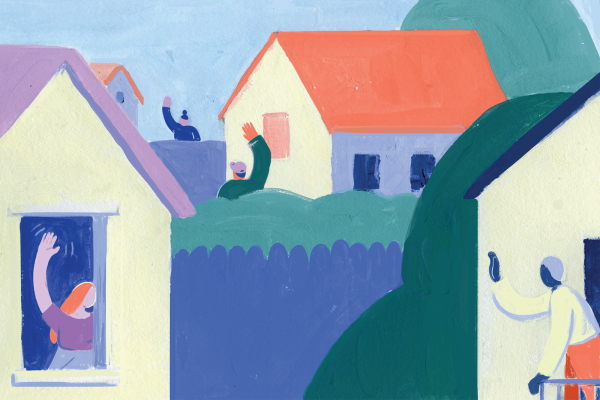MUCH OF THE country is still on lockdown to save countless lives by slowing the spread of COVID-19. The economic consequences for families, and especially for the most vulnerable people, are incalculable and rising by the day. The U.S. has the most confirmed cases of the disease in the world, with a staggering death toll. All of us have friends and loved ones who are sick or who have died, and hospitals in many parts of the country are under enormous strain.
It’s critical that—even as we stand apart from each other for our physical health—we find new ways to stay together for our mental, emotional, and spiritual health. Our physical health requires social distancing in a pandemic, but maintaining our spiritual health means we can’t let that lead to social isolation, especially for the most vulnerable. Even as we live more separated, we must find new ways to be together.
Turning from physical contact with others must not cause us to turn away from each other, but rather turn to each other in better, deeper, and healthier ways. How can we stay in even closer contact, over our phones and social media, with friends, family, and especially people who are alone; see what they need; and help them not feel so isolated and afraid? The answers must stem from active, creative, and innovative faith that leads to action.
Our response to the coronavirus pandemic must be effective and practical—and deeply theological at the same time. It is the vocation of the faith community to help us do that. We’ve seen inspiring and innovative examples of people worshiping and praying together without leaving their homes, as well as the selfless and sacrificial actions of people delivering food, medicine, and other necessary supplies to medically vulnerable members of their communities. People whose income sources are more secure are stepping up to aid those most economically at-risk in this crisis.
More time at home can create more focus and passion for pressuring policymakers on both sides of the aisle to enact policies that protect both health and people’s ability to put food on the table, keep the lights on, and remain in their homes. Given that the economy is in what some have likened to a medically induced coma, political leaders must support those who need help getting through this immediate health crisis as well as the economic crisis that is likely to be with us for considerably longer than the virus itself.
Amid this fearful time, we must not let fear become a way of life. We remember the words of Jesus: “Perfect love casts out fear.” Learning what it really means to love our neighbors in this crisis will be crucial to our collective health and survival.

Got something to say about what you're reading? We value your feedback!







